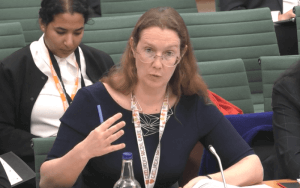Police forces and local authorities must do more to protect disabled children from the risk of child sexual exploitation, according to a major investigation by the Independent Inquiry into Child Sexual Abuse.
The inquiry’s report, published this week, says that children are being sexually exploited by networks in all parts of England and Wales in the “most degrading and destructive ways”.
Many exploited children are being raped or sexually assaulted repeatedly, over a period of months or even years, says the report.
It says that disability “featured prominently” in more than one-third of the children’s cases they looked at, with 12 of the 33 children whose cases were examined across six areas – Durham, Swansea, Warwickshire, St Helens, Tower Hamlets and Bristol – disabled children.
The report says the impact of disability in raising the risk of sexual exploitation “was not well understood within the main agencies” while some disabled children, including those who were autistic or had learning difficulties, were not being “appropriately protected” in some of the case study areas.
It says that it heard and read “harrowing evidence” of child sexual exploitation by networks during the investigation.
In one case, a child was first sexually exploited in 2013 when he was 13 years old, which continued until he was 18.
He was diagnosed as having “moderate learning difficulties and attention deficit hyperactivity disorder” and had been living in a special education residential placement.
Another child, diagnosed with a “neurodevelopmental disorder”, was said to have been moved around towns in her local area to be sexually exploited between 2016 to 2018.
She was permanently excluded from school before being referred to mental health services after a serious self-harming incident.
And a third child, who again was diagnosed with a “neurodevelopmental disorder”, was groomed and sexually exploited by adult males.
Durham County Council told the investigation that it had only started to include any “specific recognition around any disability or additional vulnerability” on its child sexual exploitation assessment form from November 2019.
Until then it was not possible to track which cases involved disabled children.
But having now included disability as a risk factor in its Child Exploitation Vulnerability Tracker, it had reviewed 57 child exploitation cases between March and June 2020, and found that 43 per cent of them had identified “special educational needs or disabilities”.
The report highlights a “lack of knowledge, understanding and awareness” about the sexual exploitation of disabled children among some professionals in the case study areas.
It says that professionals such as social workers and police officers have not received the training they need.
And it says that agencies have failed to identify sexual exploitation of disabled children, develop strategies to prevent it, and gather and assess information about the issue.
It calls on councils, police and their partners to adopt a “proactive” and multi-agency approach towards safeguarding disabled children.
Among its six recommendation, it calls on police forces and local authorities to collect separate data on all cases of known or suspected child sexual exploitation and child sexual exploitation by networks, and provide separate figures according to sex, ethnicity and disability.
Professor Alexis Jay (picture), the inquiry’s chair, said: “The sexual exploitation of children by networks is not a rare phenomenon confined to a small number of areas with high-profile criminal cases.
“It is a crime which involves the sexual abuse of children in the most degrading and destructive ways, by multiple perpetrators.
“We found extensive failures by local authorities and police forces in the ways in which they tackled this sexual abuse.
“There appeared to be a flawed assumption that child sexual exploitation was on the wane, however it has become even more of a hidden problem and increasingly underestimated when only linked to other forms of criminal behaviour such as county lines.”
A note from the editor:
Please consider making a voluntary financial contribution to support the work of DNS and allow it to continue producing independent, carefully-researched news stories that focus on the lives and rights of disabled people and their user-led organisations.
Please do not contribute if you cannot afford to do so, and please note that DNS is not a charity. It is run and owned by disabled journalist John Pring and has been from its launch in April 2009.
Thank you for anything you can do to support the work of DNS…

 Mainstream is usually much cheaper, with ‘similar or better outcomes’ for disabled pupils, MPs are told
Mainstream is usually much cheaper, with ‘similar or better outcomes’ for disabled pupils, MPs are told Children’s commissioner ‘increasingly dismayed’ at numbers ‘deprived of liberty by the state’
Children’s commissioner ‘increasingly dismayed’ at numbers ‘deprived of liberty by the state’ Child sexual abuse inquiry calls for tougher regulation of residential special schools
Child sexual abuse inquiry calls for tougher regulation of residential special schools